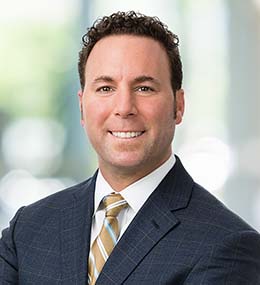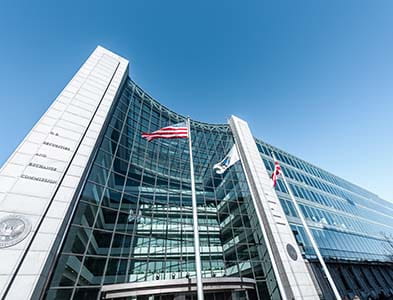Distress, Volatility, and Litigation: Navigating Unpredictable Times
Distress, Volatility, and Litigation: Navigating Unpredictable Times
In a panel discussion during the Stout Summit: Investment Funds and Alternative Assets, Joel Cohen, Managing Director in Stout’s Disputes, Claims, & Investigations group, led a discussion on the current state of regulation, enforcement, and litigation as it relates to private funds. The panelists included:
- Jaclyn Grodin, Counsel, Goulston & Storrs
- Erik B. Weinick, Co-chair of Privacy & Cybersecurity, Otterbourg P.C.
- John Scott, Director, Assistant General Counsel, Litigation, Capital One
This interview has been edited for length and clarity.
Joel Cohen: What have you been seeing in regulation and enforcement?
Jaclyn Grodin: Gary Gensler, Chairperson of the U.S. Securities and Exchange Commission, is on the hunt for private funds and private fund advisers. It’s important to appreciate that Chair Gensler doesn’t look at private fund investors just as wealthy individuals or institutional investors. The messaging coming from the SEC right now is “We’re looking at the middle-American investor behind the veneer of these private funds who have exposure through public pensions and retirement accounts.”
In January, perhaps one of the biggest proposed overhauls to private fund regulation in a very long time occurred – the SEC proposed a number of new rules and regulations, and the agency is encountering substantial pushback from the private fund industry to narrow the scope of the changes.
From the SEC’s perspective, these proposals would lead to far more transparency when it comes to fees and expense disclosures. Preferential treatment to investors for redemption and information rights will only be allowed in limited circumstances and only then with full and open disclosure to all investors in the fund.
From the private funds’ perspective, it looks like the SEC is starting to put private funds on the same sort of pedestal as mutual funds or public issuers. And coming from a past regulatory environment in which private funds were not accustomed to such scrutiny and oversight, it is really time to take a step back and look at your policies and procedures closely. Because if you don’t and the SEC is the first one taking a look under the hood, there might be some potential unintended consequences in light of what the fund has historically had in place.
Joel Cohen: How motivated do you feel Gensler is to make these changes happen?
Jaclyn Grodin: I think he’s very motivated, but I think the government moves very slowly. We’re already 10 months out from when the proposals were announced, and although there was a relatively short comment period, we’re still a ways away from anything being formally implemented.
But that’s just from the formal rules and regulations perspective. I think it’s fair to say exam activity of private funds has already seen an uptick. There was also a lag where you had exam staff going in, and now you’re starting to see some settlements and the commencement of some enforcement actions. In other words, notwithstanding what happens with the formalization of the rules, private funds are going to be under more scrutiny regardless and should consider that in the context of updating their compliance programs.
Joel Cohen: Where are the lenders sitting, and how is that affecting the markets?
John Scott: Not surprisingly, we are seeing more scrutiny as part of the underwriting process. And so it’s taking longer in certain circumstances to get through the negotiations to the end of the deal given robust due diligence.
I also anticipate that we will see those private investment funds that are acting as lenders taking much more aggressive action than you’ve seen traditional banks take in downturn cycles. For example, at the outset of COVID, a lot of banks were hit, and many lenders were hesitant to take any action against their borrowers for a whole host of reasons. I don’t think that the private investment funds are going to be as kind. I think we’ll start to see a lot of lender liability cases.
One of the things that the enforcement team will have to look at is how the loan has been administered historically, because you will have potential course of conduct issues. For example, if you’ve accepted late payments historically, accepted financial statements late historically, and not required strict compliance with all of the conditions, and now all of a sudden, because of the downturn, you start taking more aggressive action, you will see claims based on course of conduct.
Joel Cohen: How would you characterize fraud in this current environment?
Erik Weinick: I look at it as a bottom-line business defense because the economic environment that we’re entering is a fertile ground for fraud on a couple of different levels. A lot of the frauds that we see are slow-growth frauds that come from pressure regarding complying not with regulations but with business expectations. For example, fudging a borrowing base because you’re going to make up for it in the next reporting period, and then you don’t and then the fraud grows, and you have pressure to keep it going.
We’re going to see pressure on all levels of the economic atmosphere; you’re going to see pressure to develop new business, pressure to approve new business, and pressure on the underlying consumers to buy into a business or buy into an investment. For example, pressure to buy into a refinancing of an adjustable-rate mortgage through a fraudster instead of through a legitimate lending institution because of the overall economic pressures.
It becomes harder to hide things when you don’t have cash around to hide things with, and it also provides opportunity to prey upon people’s insecurities and what they think is going on. To take advantage of misunderstandings of things like cryptocurrencies and political misunderstandings such as opportunities to refinance or eliminate student loan debt. There are many fraudsters out there that are unscrupulous that will prey upon those misunderstandings at the consumer and business level.
So, revisit your compliance procedures, revisit your policies, and revisit the way that you consider new endeavors. Bring in outside professionals who can be objective and point things out to you that you might miss yourself because a heavy dose of skepticism can go a really long way.




